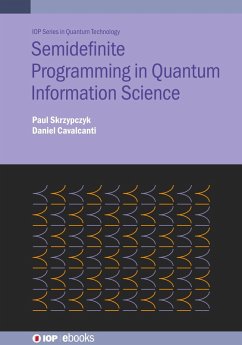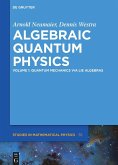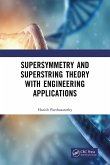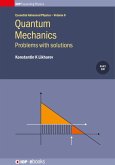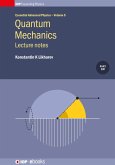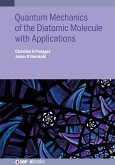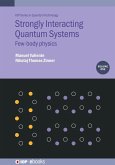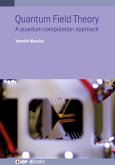Semidefinite programs (SDPs) are a class of optimisation problems that find application in numerous areas of physics, engineering and mathematics. It has become a must-know tool, due to the existence of efficient numerical methods for solving them and the rich theory that has been built up for their analysis. Semidefinite programming is particularly suited to problems in quantum physics and quantum information science, since quantum states, quantum measurements and quantum channels can all be represented mathematically by positive semidefinite operators.
Following a review of the theory of semidefinite programming, the book then proceeds to describe how it can be used to address a wide range of important problems across from quantum information science. Specific applications include quantum state, measurement, and channel estimation and discrimination, entanglement detection and quantification, quantum distance measures, and measurement incompatibility. Though SDPs have become an increasingly important tool in quantum information science it's not yet the kind of mathematics students learn routinely. Assuming the reader has a basic knowledge of linear algebra and quantum physics and quantum information, such as the definition of quantum states, measurements and channels, this graduate-level book provides a unified and accessible presentation of one of the key numerical methods used in quantum information science. Whilst the focus is on the theoretical machinery of SDPs, the authors have provided an accompanying GitHub repository containing example code, covering some of the SDPs studied in this book.
Hinweis: Dieser Artikel kann nur an eine deutsche Lieferadresse ausgeliefert werden.
Following a review of the theory of semidefinite programming, the book then proceeds to describe how it can be used to address a wide range of important problems across from quantum information science. Specific applications include quantum state, measurement, and channel estimation and discrimination, entanglement detection and quantification, quantum distance measures, and measurement incompatibility. Though SDPs have become an increasingly important tool in quantum information science it's not yet the kind of mathematics students learn routinely. Assuming the reader has a basic knowledge of linear algebra and quantum physics and quantum information, such as the definition of quantum states, measurements and channels, this graduate-level book provides a unified and accessible presentation of one of the key numerical methods used in quantum information science. Whilst the focus is on the theoretical machinery of SDPs, the authors have provided an accompanying GitHub repository containing example code, covering some of the SDPs studied in this book.
Dieser Download kann aus rechtlichen Gründen nur mit Rechnungsadresse in A, D ausgeliefert werden.
Hinweis: Dieser Artikel kann nur an eine deutsche Lieferadresse ausgeliefert werden.

